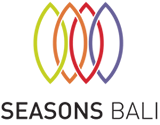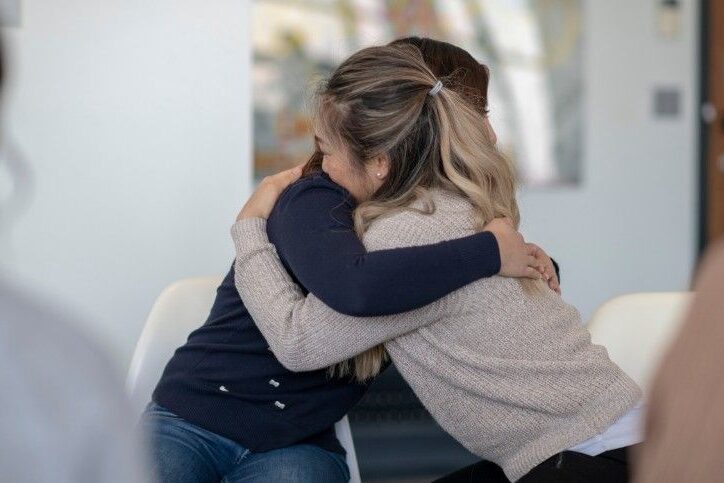Entering a treatment facility felt like entering a different country. Many of the group therapy sessions focused on experiences that did not fully align with her own, and approximately 70% of the residents were men. The data was overwhelming.
It’s a grim fact of life for so many women who try to get help for addiction.
The face of addiction treatment for women has been shifting slowly, but there is a long road ahead. Women’s substance use patterns often significantly diverge from those of men, yet many programmes are still being run under the same umbrella with the assumption that one size fits all.
The Hidden Struggles Women Face
How is addiction different for women? Well, for one thing, the process by which women begin taking drugs is also more complicated than many people might believe. Studies indicate that women are more likely to have experienced childhood abuse, domestic sexual assaults, or any other trauma before they develop addiction problems.
There’s also the biology to consider. Alcohol and drugs are processed differently in the bodies of females than they are in those of males. They tend to advance from initial use to addiction at a faster pace, a trend that has been dubbed “telescoping” by researchers.
And here’s something that might shock you: women are actually more likely to die from drug overdoses, as a proportion of their numbers and use, than men.
But it is not just about the physical dissimilarities. The societal pressures that women face add to the challenges of recovery and make healing seem like an impossible goal.
Shame and Stigma: The Double Standard
Let’s face it, contemporary society still metes out harsher treatment of addiction to women than men. While a man struggling with alcohol might be referred to as having a “drinking problem”, a woman in the same position is labelled morally deficient or even a bad mother.
This double standard results in layers upon layers of shame that make it difficult for women to seek help in the first place.
Just think about it: for many women who undergo treatment, they have left behind children, old parents and often a whole family that depends on her care in some way or another.
She may feel extreme guilt. “How is everyone going to get along while I am away?” is a question that keeps many women from seeking the help they need.
Why Female Rehab Programs Matter
And that’s where women-only programs can come in handy. These programmes are not merely typical ones that have been superficially altered; they are specifically designed from the ground up to address the unique challenges women face with these issues.
At Seasons Bali, this approach also acknowledges that women need a different type of space to heal. In the residential program, women are provided with a refuge to tend not only to their addiction but also to the smaller issues that fed it. These issues include trauma, relationship patterns, and mental health concerns that have not been appropriately addressed.
Creating Safe Spaces for Vulnerability
One thing that becomes immediately apparent in gender-specific settings is how differently women open up when they’re not worried about being judged by men in the group.
There’s something powerful about being able to share experiences of sexual trauma, postpartum depression, or domestic violence with others who truly understand.
The family program at Seasons Bali recognises this dynamic too. Women’s addictions frequently intertwine with family relationships, necessitating careful attention.
When family members participate in the recovery process, it helps address some of those complex dynamics that might otherwise sabotage long-term success.
Gender-Specific Addiction Recovery: More Than Just Separation
Real gender-specific recovery from addiction is something more than a mere distinction between male and female facilities. It means recognising that women may need entirely different therapeutic strategies.
For example, some women respond better to therapy concentrated on relationships and connections (than approaches that are more confrontational), which may be more successful for certain men. Substance addiction treatment for females usually includes:
- Trauma-informed care, which acknowledges the high prevalence of PTSD in women who are addicted.
- Therapies for Eating Disorders and Body Image Issues (oftentimes assumed to co-occur with drug abuse).
- Support for mothers, including assistance with guilt and parenting skills.
- Mental health treatment for co-occurring disorders such as depression and anxiety.
The Motherhood Factor
Here’s something that traditional programs often miss: many women in recovery are mothers, and this identity profoundly affects their recovery process. The couples program at Seasons Bali understands this dynamic addiction doesn’t just affect the individual; it impacts entire family systems.
Women often carry enormous guilt about how their addiction has affected their children. They worry about whether they can ever be “good enough” mothers again. This isn’t just emotional baggage that can be quickly processed; it requires ongoing support and specific strategies.
Breaking Down Barriers to Treatment
The single hardest thing in women’s addiction treatment is getting a woman through the door. The obstacles are physical and pragmatic:
- Childcare: Some women do not have someone to watch their children so that they can obtain a treatment. This underlying barrier is seldom addressed by classic programs.
- Financial dependence: A growing number of women rely on their partners for financial support, who may be resistant to their recovery efforts. In some cases, those partners actively sabotage efforts to find treatment.
- Variations in presentation: Women are less likely to present their addiction openly or turn directly to treatment for substance abuse but rather are more apt to mask their addiction problem or seek help from doctors for depression and anxiety.
One of the key residential programs at Seasons Bali aims to break down some of these barriers by incorporating integrated support that extends past only treating the addiction itself.
The Bali Advantage for Women’s Recovery
There’s something particularly appealing about the idea of recovering in a place like Bali. For many women, especially those from Australia who access Seasons Bali’s services, the distance from home can actually be beneficial.
Being away from familiar triggers, toxic relationships, and the environments where drug use occurred can provide the space needed for real healing. The wellness retreat aspects of treatment in Bali offer something that sterile medical facilities often can’t: a sense of renewal and possibility.
Women often respond well to holistic approaches that include:
- Yoga and mindfulness practices
- Nutritional therapy (women with addiction frequently have complex relationships with food)
- Creative therapies that help process trauma in non-verbal ways
- Adventure therapy that builds confidence and self-efficacy
Addressing Co-Occurring Conditions
Here is where treatment for women with substance use disorders actually gets really complicated: Women are much more likely than men to have coexisting mental health conditions. Depression, anxiety, PTSD and eating disorders are common comorbid conditions with addiction.
Mainstream approaches that are more concerned with controlling drug use tend to overlook these interconnected problems. A woman could make it out of detox and relapse if the underlying depression wasn’t properly treated.
Seasons Bali’s integrative approach acknowledges this. Treatment plans often are used to treat more than one condition at once, rather than in isolation.
Building Long-Term Support Networks
Recovery doesn’t end when someone leaves residential treatment. Women often need different types of ongoing support than men do. They’re more likely to benefit from:
- Support groups that understand gender-specific issues
- Ongoing therapy that addresses relationship patterns and trauma
- Practical support with childcare and employment
- Medical care that understands how addiction affects women’s health differently
The aftercare program component becomes crucial here. Women who don’t have strong support systems in place are at higher risk of relapse, particularly during stressful life events like divorce, job loss, or health problems.
The Family Recovery Dynamic
One of the things that makes a successful female rehab stand out is understanding that women’s addictions grow as part of a family system.
The couple’s program model realises that in some cases, the partner’s behaviour – such as enabling or codependency – and sometimes even abuse must be examined since these factors are often correlated with a successful recovery.
Resource guides for addiction recovery provide information on how getting help for an addiction can change the way that addicts connect and relate with family members or even with a trained marriage psychologist.
That doesn’t mean laying blame on family members, but it does require an understanding that addiction is a family matter and that sometimes everyone has to change for recovery to take hold.
Hope and Healing: What Success Looks Like
Real success in women’s addiction recovery looks different for each person, but there are some common themes. According to the Australian Institute of Health and Welfare’s treatment outcome research, women who do well in recovery often report:
- Improved relationships with their children
- Better ability to set boundaries in relationships
- Increased self-confidence and self-worth
- Better physical health and self-care practices
- Stronger connection to their values and goals
The 12-step fellowship programs offered provide ongoing community support that many women find invaluable.
There’s something powerful about connecting with other women who understand the unique challenges of recovery.
Looking Forward: The Future of Women’s Treatment
The field of addiction treatment is belatedly catching up to what researchers have long known: women require different approaches. There are more programs starting to take steps towards gender-specific addiction recovery options, but there’s still so much work to be done.
Recovery is possible. It may be unlike what you thought, and it may require finding the right support, but it can happen. Every woman should have the opportunity to take life back, restore relationships and establish a future.
If you’re thinking about treatment for yourself or someone else, remember that fit is key. For many women, gender-specific programs aren’t a nice-to-have — they’re critical to successful recovery.
Just to give you an idea of what to expect, read our overview of the addiction recovery process: What really happens in rehab?
Ready to take the next step? Recovery starts with a single decision, and you don’t have to make it alone. Your comeback story is still unwritten. Contact us today to discover more about our gender-based recovery programs.




